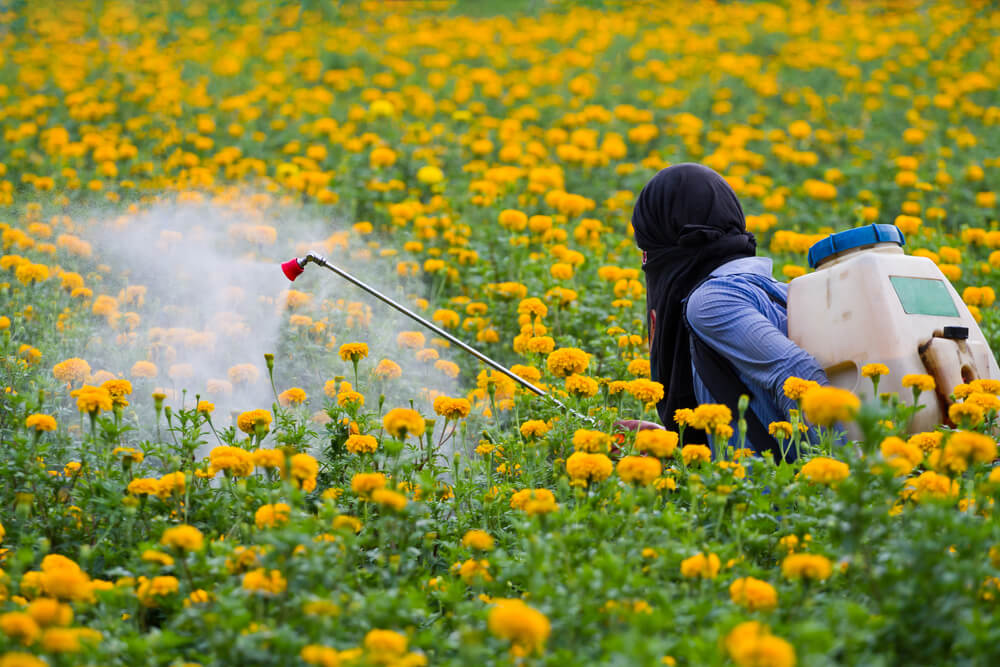(05/01/23)
(OTTAWA | Traditional, unceded territory of the Algonquin Anishinaabeg People) — New Brunswick MP, Jenica Atwin, and prominent documentary filmmaker, Jennifer Baichwal are calling on Parliament to ban the use of glyphosate, Canada’s most widely-used weed killer. Atwin is presenting a petition – signed by more than 18,000 Canadians and backed by numerous environmental organizations – to her parliamentary colleagues today.
“There is an alarming and growing body of independent scientific research proving glyphosate’s harm to humans and all other life that Canada’s regulator, the Pest Management Regulatory Agency, is ignoring,” says Baichwal, whose recent CBC documentary, Into the Weeds: Dewayne Lee Johnson vs. Monsanto Company investigated the damaging and systemic impacts of glyphosate.
Attempts by the public to have the Pest Management Regulatory Agency (PMRA) seriously consider the evidence have been rebuffed. Organizations, including the Canadian Association of Physicians for the Environment; Ecojustice; Environmental Defence; Friends of the Earth Canada; Safe Food Matters and David Suzuki Foundation, have repeatedly asked PMRA to review and act on current science rather than maintaining its 2017 decision to allow continued use of the chemical. Yet glyphosate is currently approved until 2032.
“The Pest Management Regulatory Agency is too invested in using manufacturer’s science and protecting its past decisions to be trusted to assess the safety of glyphosate,” says Baichwal. “This is agency capture at its worst, and it has to stop.”
Indigenous communities have also had their requests to ban glyphosate ignored, including the Traditional Ecological Knowledge Elders of the Robinson-Huron Treaty territory, Wolastoq Grand Chief and Wolastoqew Clan Mother in New Brunswick and community members in the Algonquin Territory Leeds Grenville Thousand Islands and Rideau Lakes and the Kukatoosh River Indian band, among others.
Baichwal’s petition calls for 1) A ban on the sale and use of glyphosate to protect human, animal, insect, soil, plant and planetary health; and 2) A comprehensive plan to reduce pesticide use in Canada. This would allow Canada to fulfill its recent commitment to Article 7 of the Global Biodiversity Framework, which calls for a reduction of pesticides by 50 per cent by 2030.
Baichwal will announce petition to Auditor General
Given the significant issues of corporate influence, weak decisions on pesticides, delayed regulations and lack of enforcement within PMRA, Baichwal will seek the support of the
Auditor General to get answers on what is being done to tackle the ever-increasing use and impact of pesticides, and how Canada plans to meet its international commitments on pesticides reductions.
“It’s time our political leaders put the health and safety of Canadians and Canada ahead of pesticide-industry lobbying and profit,“ says Baichwal. “Tomorrow [May 2nd], I will be filing a new petition to the Auditor General calling on four federal Ministers to account for the continued use of glyphosate in Canadian agriculture, public and private lands, and forests.”
A new Auditor General petition asks the Ministers of Health, Environment, Agriculture and Natural Resources to account for their department’s actions, or lack thereof, to tackle the impacts of glyphosate, and protect human health and the environment.
Documentary: Into the Weeds streaming for free on CBC Gem
https://www.cbc.ca/passionateeye/episodes/into-the-weeds
www.intotheweedsimpact.com @intotheweedsdoc
Backgrounder: Video + Written Testimonials including exclusive with Margaret Atwood which will be released 9 am May 2:
https://www.intotheweedsimpact.com/ottawa-press-conference
PW: Ottawa
“Our regulators are puppets, dancing on the strings of industry. Result? 47 years of dumping Roundup on Canadians and our homes. We’re fed up with glyphosate. Truly. It is in our food. It is in our bodies. We’re fed up with politicians who aren’t listening. We’re fed up with inaction. The case is clear — just ban glyphosate. ”
– Mary Lou McDonald, Safe Food Matters
“We stopped using glyphosate on our farm back in 2015 and have managed our land as an organic operation, free from glyphosate since then. I don’t see a future for our farm using that product (glyphosate). It becomes almost a futile system where most of the margin is going to the agrichemical businesses and not actually staying on the farm. So, the farmer is suffering, the planet is suffering, and the people that are eating our food are suffering, and a lot of money is going to the hands of very few, which is a concerning state for a vibrant rural landscape.”
– Brett Israel, Founder 3 Gen Organics Farm
“We have been fighting this fight for many years and no one is listening. In 2017, we released a declaration, supported and signed by the 21 First Nation Chiefs in the Robinson-Huron Treaty territory, calling for an immediate moratorium on aerial spraying of forests. The declaration explained the important role of Elders and their knowledge, how glyphosate is killing the Anishinaabek way of life, and called on governments, academic institutions, and professionals to engage in meaningful dialogue and consultations with First Nations. It’s 2023 and nothing has been done. Glyphosate continues to poison our lands and continues to poison us. We will keep on sharing our knowledge and keep on fighting.”
– Ray Owl, TEK Elder, Robinson-Huron Treaty
For Media Interviews, contact:
Kathleen O’Grady, quoi@quoimedia.com 613-897-9276
-30-




